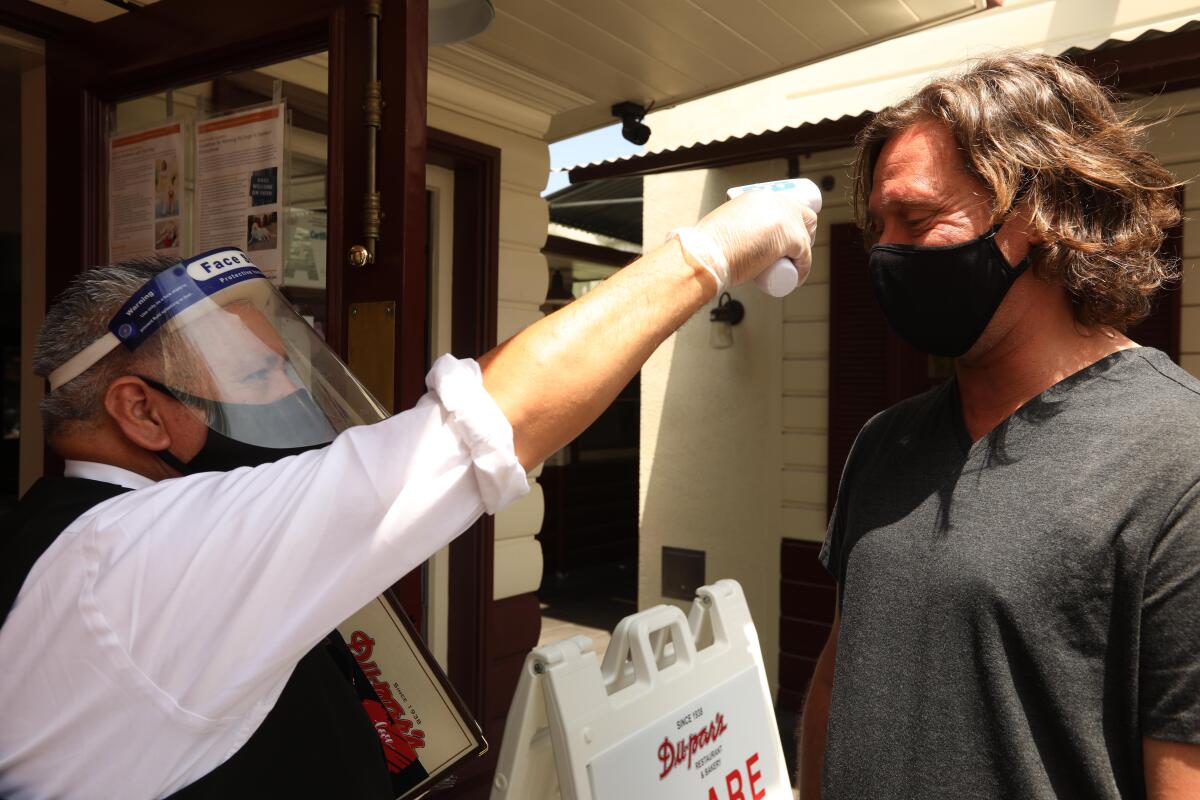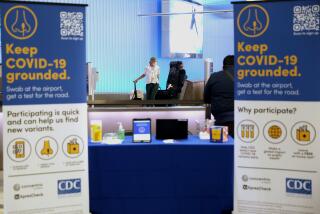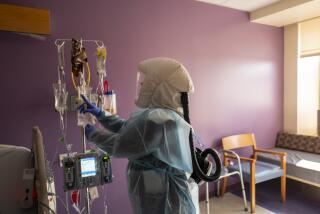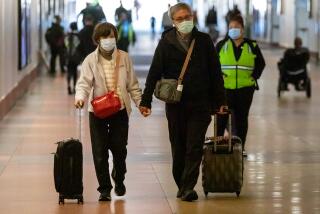Reopening L.A. economy improved mental health, but coronavirus fears persist, survey finds

More Los Angeles County residents are leaving their homes and venturing back into public life as the economy reopens, prompting a reduction in psychological distress but heightening anxiety that reopening is occurring too quickly and could cause serious new coronavirus outbreaks, according to a new survey.
The results of a survey by the USC Dornsife Center for Economic and Social Research and analyzed by L.A. County officials were revealed Monday by Public Health Director Barbara Ferrer amid a major increase in new coronavirus cases and hospitalizations tied to the reopening of businesses and people getting back to old routines, such as private gatherings, without wearing masks or keeping distance from people.
In mid-April, nearly 86% of L.A. County residents said they stayed home at all times except for essential activities or exercise; by the last week of June, only 58% said they were doing so.
More L.A. County residents are also having close contact — being in a distance within 6 feet — with people outside their household. In mid-April, only about 31% of L.A. County residents had such close contact with people outside of their household; by the last week of June, 55% were doing so.
As the reopening has accelerated, however, fewer L.A. County residents are reporting a fear of running out of food because of a lack of money or other resources. In early April, 30% of L.A. County residents surveyed were worried about running out of food; that figure fell to roughly 11% for the last week of June.
Additionally, fewer L.A. County residents are now reporting psychological distress as the reopening accelerated. In early April, 47% of surveyed county residents reported mild, moderate or severe symptoms of psychological distress; as the reopening accelerated, 36% reporting feeling such symptoms.
There was also a slight reduction in the percent of L.A. County residents who reported the pandemic posed a moderate or substantial threat to their household finances; 64% said it did so in mid-May; 56% said it did so in mid-June.
“This is the good news about opening — it’s that in fact, for many people, it’s provided some very important and much needed relief,” Ferrer said.
But as people have returned to physical work locations, workplaces have increasingly become sites of exposure to the highly contagious virus. While in early May, 37% of surveyed L.A. County residents said their job required them to come within 6 feet of other people regularly, 43% said they had to do so in mid-June.
More L.A. County residents are increasingly concerned that California is lifting restrictions on public activity due to the pandemic too quickly, the survey found. While 75% of survey respondents expressed such worry in early May, 79% did so in mid-June.
Ferrer said it’s obvious that people fed up with the stay-at-home order and wanting to return to a pre-pandemic way of life are a big reason behind the increased spread of disease.
“It’s clear that after months of quarantine, combined with the reopening of many sectors in the span of several weeks, we’ve had a lot of people disregard the very practices that allowed us to slow the spread,” Ferrer said. “Our inability to follow the most basic infection control and distancing directives leads to serious illness, and even the death of the people we love.”
Ferrer said she understands that “everyone is extraordinarily tired and they’re tired of having to deal with this virus.” But she added that “the sooner we get back to creating a new normal” — avoiding crowds, confined spaces, close contact; and always wearing masks and staying physically distant from those not in our household — the sooner we can return to school and work and seeing friends and family.
More to Read
Sign up for Essential California
The most important California stories and recommendations in your inbox every morning.
You may occasionally receive promotional content from the Los Angeles Times.











